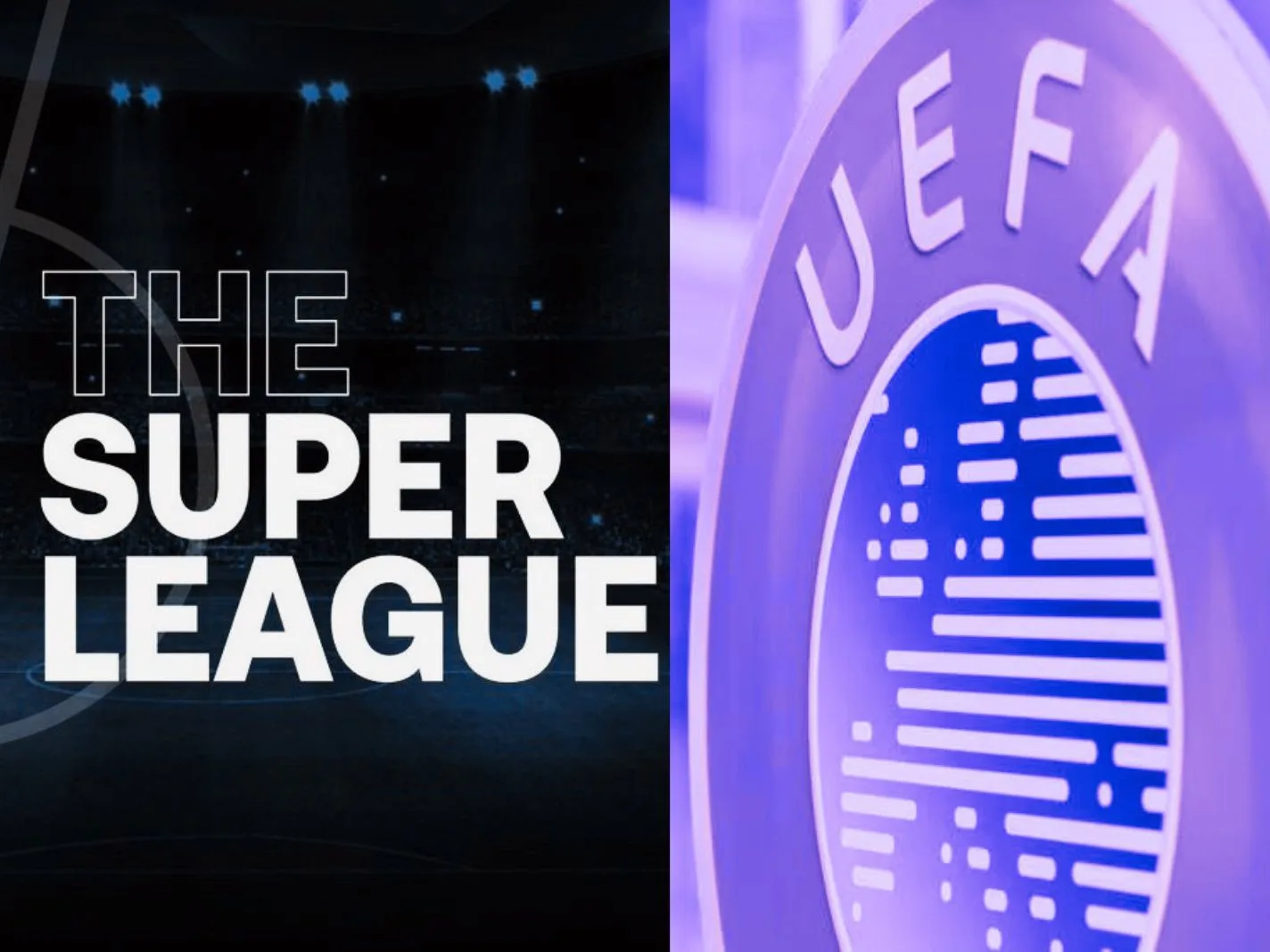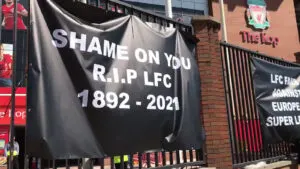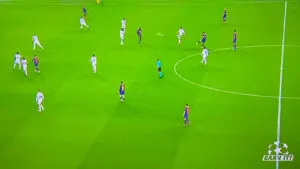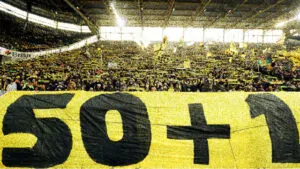The European Super League (ESL) project was announced in April 2021 and was initially designed to rival UEFA’s Champions League.
However, the initiative took a nosedive as it swiftly crumbled under the weight of disapproval from fans, national governments, and domestic leagues. The original 2021 Super League concept faced backlash for its ‘closed’ design, where all the founder clubs were shielded from relegation. This backlash prompted several major clubs to abandon their plans.
This Super League project was then given a new revival in December 2023 when the European Court of Justice ruled that UEFA, European soccer’s governing body, and FIFA, its global counterpart, violated EU law by obstructing the clubs from establishing a Super League.
Consequently, UEFA is now under a legal obligation to thoroughly and impartially evaluate proposals for the Super League or any other prospective new competition within its jurisdiction.
The European Super League is now set to be introduced with a new format, crucially removing the “closed shop” format. The Super League promoters, A22 Sports Management have swiftly announced plans for a new 64-team and a three-tier rebel format tournament to compete with or rather replace UEFA’s Champions League.
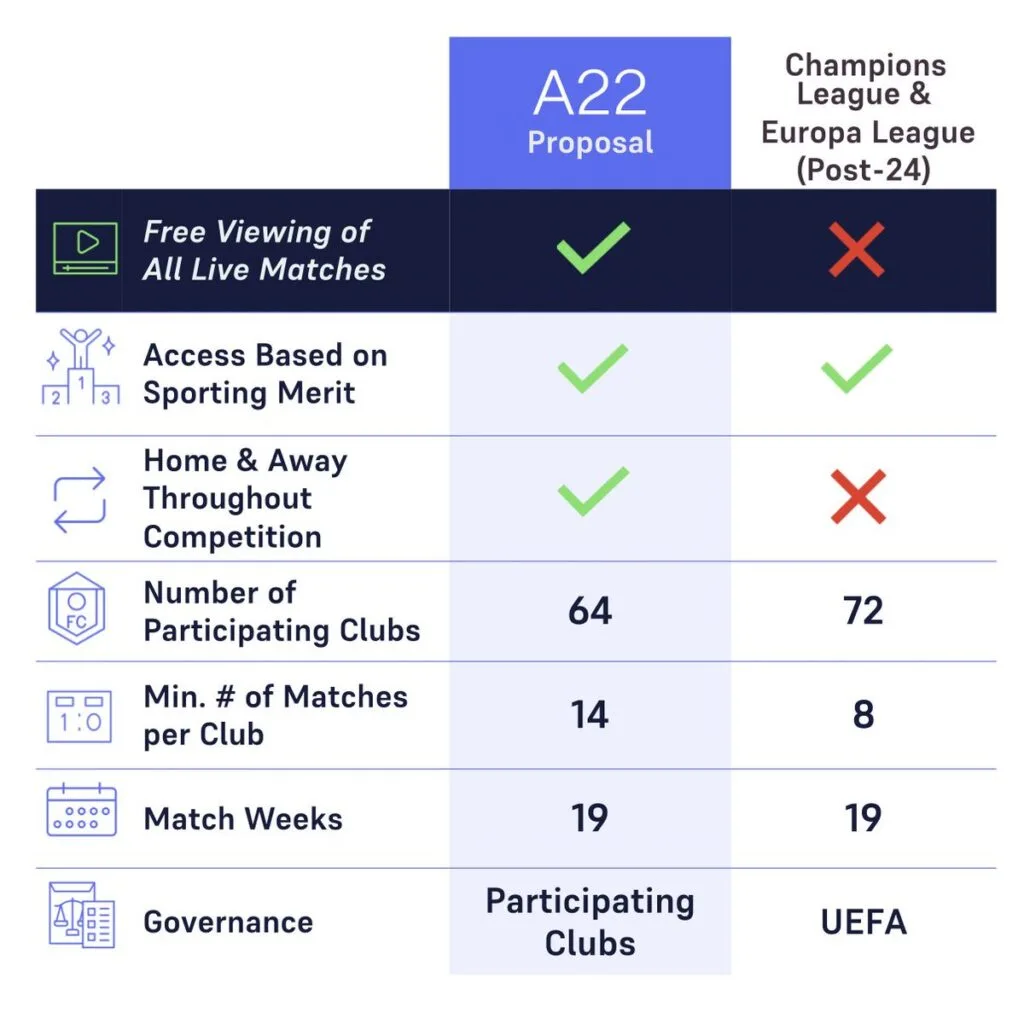
This plan, however, was immediately snubbed by several Premier League clubs, including Manchester United. Manchester City, Chelsea, and Tottenham also followed and came forward to reaffirm their loyalty to UEFA competitions. Bayern Munich has also distanced itself from the shock plans.
However, Barcelona is one of two clubs, alongside Real Madrid, who remain publicly committed to the idea of Super League.
Speaking to the Catalan radio station RAC1, the president of Barcelona, Joan Laporta, has claimed the European Super League could be up and running by next season or at the latest by the following year. Having said that, he also hinted at abandoning the project altogether if it does not materialize soon.
“The Super League could start next season, or it will be in 2025-26, and if not, I will rethink everything,” Laporta said in the interview.
As per reports, numerous executives from English clubs have already dismissed the prospect of future English participation in the European Super League (ESL). The recently proposed Football Governance Bill is perceived as a deterrent, with indications suggesting that Premier League teams involved in such competitions could potentially face expulsion.
But that doesn’t concern the Barcelona president. Asked about the prospect of English clubs joining, Laporta said: ‘Whether or not the English come, I don’t care. They already have a Super League with the Premier League.’
Joan Laporta has asserted that there is sufficient interest to kickstart the Super League in the upcoming season.
Identifying clubs that have already conveyed their intention to participate, Laporta has proceeded to specifically mention each of these teams.
”In addition to Barca and Madrid, there would be the Italians: Inter, Milan, Napoli, and Roma. Also French teams such as Olympique de Marseille, and the three Portuguese, Sporting, Benfica, and Porto, who would be delighted to come”. Confirmed the President in the interview.
“And there are the Dutch teams -Ajax, Feyenoord, and PSV; and Bruges and Anderlecht from Belgium. A 16-team competition would be better.”
He added: ”Any team in La Liga, except Atletico Madrid.”
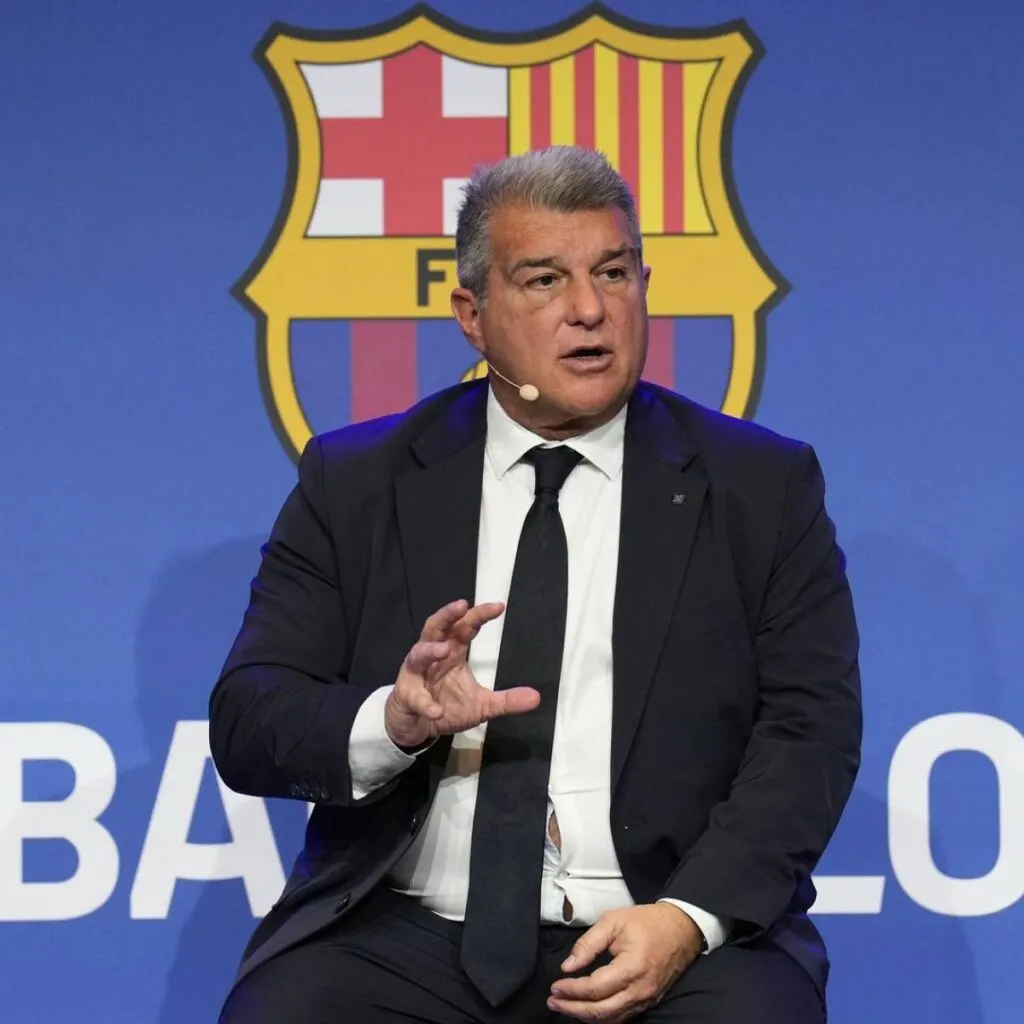
Laporta’s statement follows recent claims by A22 Management co-founder Anas Laghrari, who asserted that 20 teams across Europe have already agreed to participate in the breakaway competition. However, he has declined to disclose the names of these teams.
In an interview with Ouest-France, Laghrari claimed, “I don’t want to say their names because I don’t want to expose them,”
“Since December 21, we have spoken with around 50 different clubs. About 20 of them are very, very motivated by the project. We already have enough clubs to start a competition.”
That seems more easier said than done because the approval from FIFA is still required for the Super League to formalize any concrete plans. However, the global governing body is now restricted from rejecting its existence on ideological grounds and is obligated to consider the proposal before reaching a final decision.
That being said, the ESL has more serious issues to address, as several clubs mentioned by Laporta as potential participants in the league have since responded publicly by rejecting any interest in the proposed new competition.
AS Roma has issued a public statement clarifying, “AS Roma reiterates that it does not support any project related to the so-called Super League,”.
A source close to Inter Milan said the club’s potential participation was an “unfounded rumour.”
A spokesman for Ligue 1 side Marseille has also denied any interest on the part of his side and reiterated comments made by club president Pablo Longoria in December, stating, ”A closed league is not football—sporting meritocracy should earn you your position. I don’t see a closed league as the future of European football.”
The Ajax Supporters Association contacted the club and relayed the following message: ”Inquiries at the club reveal that Ajax never discussed this with Laporta, let alone agreed. Ajax is completely surprised by this unjustified claim.”
Feyenoord has also chosen a similar path, issuing a short statement that reads: ‘Feyenoord is very surprised by reports in international media that the club has agreed to participate in the so-called Super League. This is total nonsense.’
In addition to these names, Atletico Madrid, Milan and Juventus and all Premier League clubs have all withdrew from the original 2021 launch of the Super League. Meanwhile, Bayern Munich and Paris Saint-Germain have never been involved in the initiative.
Despite the unwavering loyalty demonstrated by clubs like Barcelona and Real Madrid, and regardless of Laporta’s efforts to advocate for the Super League, the tournament is likely to face difficulties in launching without the backing from enough prospective member clubs.
The UEFA court verdict may be a point for them, but given how some clubs have swiftly denied any involvement and the air of uncertainties remains widely criticized, just getting clubs to willingly sign up is the greatest challenge to its very existence.

